
Professor Philip Howard
Professor of Internet Studies
Philip N. Howard is a professor of sociology, information, and international affairs. He is Director of the Programme on Democracy and Technology, and is a Professorial Fellow of Balliol College.
The Programme on Technology and Democracy investigates the use of algorithms, automation, and computational propaganda in public life. This programme of activity is backed by a team of social and information scientists eager to protect democracy and put social data science to work for civic engagement. We are conducting international fieldwork with the political consultants and computer experts who are commissioned to activate or catch information operations. We are building original databases of incidents and accounts involved in such activities, and we use our knowledge to make better tools for detecting and ending interference with democracy. We engage in “real-time” social and information science, actively disseminating our findings to journalists, industry, and foreign policy experts. Our network of experts helps civil society, industry, government, and other independent researchers develop a better understanding of the role of technology in public life.
The global pandemic has brought to the fore the pressing problems caused by disinformation, leading many scholars to study the “infodemic” that is accompanying and exacerbating the public health crisis. Disinformation about the virus has already led to serious health repercussions in countries around the world. Our research on COVID-related disinformation looks at the prominence of stories by junk news outlets and state-backed media outlets on social media. ComProp researchers are also investigating the systems that help these junk news stories to succeed: from the online advertising ecosystem to incentives on social media platforms.
The tools of computational propaganda are often deployed around elections, as various actors seek to sway public opinion through legitimate and illegitimate means. Our research on disinformation and elections looks at information-sharing on social media by members of the electorate, foreign influence campaigns, and the role of these campaigns in political polarization. We have conducted research on elections in Europe, North America, South America, the Middle East, and Asia.
Our team is interested not only in the content of disinformation but also in the technologies and systems that shape the information landscape. To this end, our research examines the various forces constraining and enabling computational propaganda: how tech companies incentivise and amplify problematic content, how governments seek to regulate these companies, and how tech platforms themselves are responding.
The tools of computational propaganda are increasingly deployed by states to shape public opinion, sow distrust, and create confusion both at home and abroad. Our research on state-sponsored disinformation looks at the proliferation of “cyber troops” in countries around the world, the reach and contents of state-sponsored media outlets, and the impacts of foreign influence operations.

Professor of Internet Studies
Philip N. Howard is a professor of sociology, information, and international affairs. He is Director of the Programme on Democracy and Technology, and is a Professorial Fellow of Balliol College.
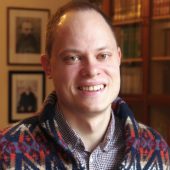
Former Postdoctoral Researcher
Project role: Researcher
Aliaksandr is a political communication researcher and was Director of Research at the Programme on Democracy and Technology at the Oxford Internet Institute.
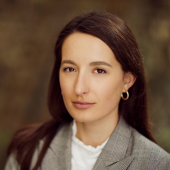
DPhil Student
Project role: Research Assistant
Lisa-Maria Neudert is a DPhil Student researching platform governance and regulation in response to mis/disinformation.

Research Associate
In 2022 Jonathan Bright became the Head of AI for Public Services at the Turing Institute, having previously been a faculty member of the OII. A political scientist, he specialises in computational and ‘big data’ approaches to the social sciences.
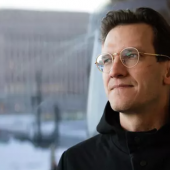
Former Research Associate
Project role: Researcher
Aleksi Knuutila is an anthropologist and data scientist. He was working as a Postdoctoral Researcher in the Computational Propaganda programme, where he used computational and qualitative methods to study political communications and communities.
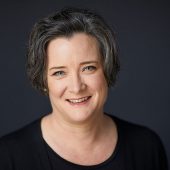
Former Research Associate
Project role: Research Associate
Emily Taylor is the CEO of Oxford Information Labs Ltd. and a specialist in cybersecurity, internet law and governance, and surveillance laws. In collaboration with Philip Howard, she is involved in ongoing research around AI and Good Governance.
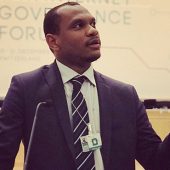
Former MSc Student
Project role: Research Associate
Lofred Madzou’s interests lie at the intersection of philosophy, artificial intelligence and policy. The overarching theme of his work is "responsible AI" and he works in collaboration with Philip Howard.

Former Research Associate
Along with Philip Howard, Dr Rasmus Kleis Nielsen is co-director of the Oxford Martin Programme on Misinformation, Science and Media.
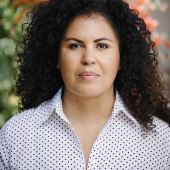
Former Research Associate
Dr Safiya Noble is an Associate Professor at UCLA in the Department of Information Studies. Her work focuses on the design of digital media platforms and their impact on society, including work on public education on AI & algorithms with Gina Neff.

Former Visiting Fellow
Young Mie Kim's research centres around new media and democracy; at the OII she will be examining collective action in the new media environment.
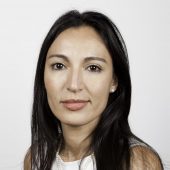
Former Visiting Policy Fellow
Hind Benbya is Professor and Head of IS and Business Analytics at Deakin Business School in Melbourne. At Oxford Internet Institute, Prof Benbya investigates the policy implications of emerging artificial intelligence technologies in healthcare.

Former Visiting Policy Fellow
Jim Bligh is Director of Corporate Affairs for the UK and Ireland at Tata Consultancy Services, where he is responsible for public affairs and policy; stakeholder, academic, industry analyst and government relations.

Former Visiting Policy Fellow
John Edge is an impact focused operating executive and board advisor to high growth technology companies. Mr. Edge is a specialist in FinTech, markets infrastructure and data privacy.
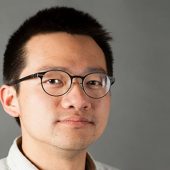
Former Visiting Policy Fellow
Tim Hwang is a researcher and lawyer working at the intersection of technology, public policy, and economics. His current work focuses on the social impact of developments in artificial intelligence and machine learning.
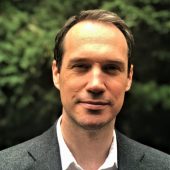
DPhil Student
David Michael Kelly is a DPhil student and former Visiting Policy Fellow at the Oxford Internet Institute researching international governance of frontier technologies.

Advisory Board Member
Sir Julian has over 30 years’ experience as a senior diplomat, serving in international political and national diplomatic roles on behalf of the UK government.

Former Visiting Policy Fellow
Traci Maddock is a leading digital strategist and social media architect specialising in identifying and realising strategic partnerships for brands, causes, and global talent.
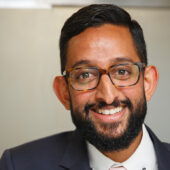
Former Visiting Policy Fellow
Ravi Naik, the Law Society’s 2018 - 2019 Human Rights Lawyer of the Year, is a multi-award winning Solicitor, with a pioneering practice at the forefront of data rights and technology. In January 2020, Ravi co-founded the data rights agency, AWO.

Visiting Policy Fellow
Luís Viegas Cardoso is a senior expert on digital, technology & innovation at the Advisory Service of the President of the European Commission. He delivers lectures & seminars at Harvard University, ESCP Business School & The College of Europe.

Former Visiting Policy Fellow
David Tomchak is an award-winning Chief Digital Officer and editor.

With Professor Philip Howard, Dr Charles Kriel, and Katharina Gellein Viken
A discussion and Q&A with the co-directors and star of ‘People You May Know’, Dr Charles Kriel & Katharina Gellein Viken.

With Dr Aliaksandr Herasimenka and Professor Philip Howard
Dr Aliaksandr Herasimenka, a postdoctoral researcher at the Computational Propaganda Project (COMPROP) is joined by Professor Philip Howard, Director of the OII and Principal Investigator for COMPROP.

With Dr Aliaksandr Herasimenka and Professor Athina Karatzogianni
Athina Karatzogianni, editor of the book series Digital Activism and Society, talks to researcher Aliaksandr Herasimenka about the role played by ICT in the 2020 protests again President Alexander Lukashenko.

20 June 2023
This Pride month we spoke to Egerton Neto, Programme Manager, for the Programme on Democracy and Technology, misinformation expert and advocate for LGBTI+ rights to better understand how misinformation is affecting the LGBTI+ Community.

19 January 2023
University of Oxford researchers have published new work exploring how health misinformation campaigns are able to operate and succeed online, using infrastructure provided by the world’s leading tech companies.

8 March 2022
The theme of International Women’s Day 2022 is #BreakTheBias. We're marking the day by highlighting the work of our brilliant and innovative women academics, researchers, and students, here at the OII.
11 May 2021
A new study by researchers at the Oxford Internet Institute, University of Oxford uncovers a coordinated amplification network promoting the Twitter accounts of PRC diplomats based in the United Kingdom.

Metro, 10 July 2021
On May 26, Sam*’s phone buzzes with a new WhatsApp message. She sees it’s from her father in Australia, who she hasn’t seen before the pandemic, and her heart sinks.

The Conversation, 25 January 2021
As Vice President Kamala Harris settles into her first full week in the White House, thousands are heading online to celebrate her groundbreaking achievement.

Wired, 20 September 2022
The encrypted messaging app is a haven for politically motivated vitriol, but users are increasingly bringing threats to targets’ doorsteps.

Project Syndicate, 05 August 2022
Brazil’s statistics agency is refusing to include questions about sexual orientation and gender identity in its census, perpetuating the exclusion of queer people from official figures.
